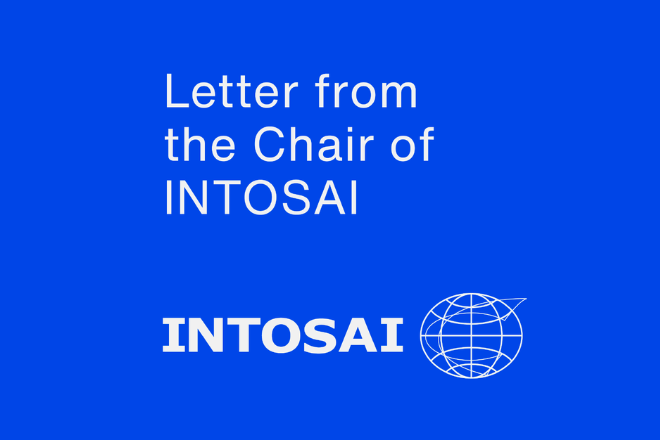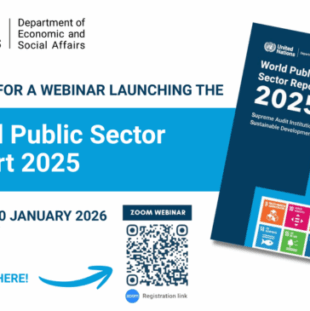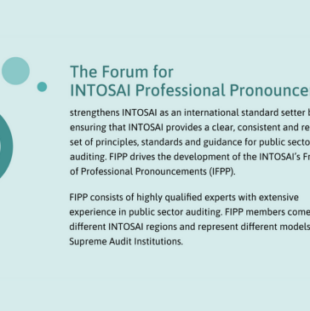Strengthening the Independence of Supreme Audit Institutions: A Global Commitment

The chair of the International Organization of Supreme Audit Institutions (INTOSAI), Minister Bruno Dantas, in his May 2024 open letter, highlights a key component for SAIs- their independence.

Supreme Audit Institutions (SAIs) have an essential role in the governmental accountability framework, as they are crucial for promoting transparency, accountability, and responsible management of public funds. To establish trust, credibility, and effectiveness in fulfilling their role, they must maintain independence from their national governments and be shielded from external influences. The independence of SAIs is thus a crucial foundation for ensuring the efficient audit and oversight of the use of public resources.
The concept of Supreme Audit Institutions’ independence is complex and involves multiple legal and practical aspects. Firstly, de jure independence pertains to the safeguards outlined in the legal framework concerning the institutions and their oversight function. Secondly, de facto independence refers to the genuine ability of these institutions to operate impartially, free from any external influence.
The global community acknowledged the importance of complete independence of Supreme Audit Institutions nearly 50 years ago. The Lima Declaration, which was endorsed in 1977 during the IX International Congress of Supreme Audit Institutions, marked a significant milestone by establishing the principles of independent auditing in the public sector and highlighting the need for each country to establish a supreme audit institution with legally guaranteed independence.
In 2007, the Declaration of Mexico, presently known as INTOSAI-P10, expanded on these principles and outlined eight pillars of the independence of Supreme Audit Institutions, including the importance of a legal framework, appropriate human and monetary resources, autonomy in selecting audit issues and planning audits, security of tenure for auditors, unrestricted access to information, and the right to report on audit work.
The United Nations has acknowledged, through its Resolutions 66/209 of 2011 and 69/228 of 2014, the significance of Supreme Audit Institutions in promoting efficiency, accountability, effectiveness, and transparency in public administration. It also acknowledged the importance of countries prioritizing the independence and capacity-building of SAIs.
Nonetheless, despite global acknowledgment of the importance of the independence of Supreme Audit Institutions, many countries still face significant challenges, which vary depending on their political, legal, social, and institutional circumstances. Although there is typically a legal framework in place that acknowledges the autonomy of audit institutions, this can be challenged in the face of legal or practical restrictions, particularly political interference.
According to the data provided by the World Bank, specifically the Supreme Audit Institutions Independence Index of 2021, significant efforts are still needed to achieve the objectives outlined in the 1977 Lima Declaration concerning the independence of audit institutions. Out of the 118 countries evaluated, only 19 were determined to have attained high or very high levels of independence, while 29 countries were classified as having low independence. The indicators relating to financial and personnel autonomy were the most critical.
Furthermore, the recently released Global SAI Stocktaking Report 2023, published by the International Organization of Supreme Audit Institutions (INTOSAI) Development Initiative (IDI), uncovers a troubling trend: for the third consecutive edition, following the first report in 2017, there has been a notable decrease in the independence of Supreme Audit Institutions on a global scale. This decrease is especially evident in aspects concerning the adequacy of the legal framework, access to information, and financial and administrative autonomy.
The capacity of Supreme Audit Institutions to independently audit government performance and finances is being increasingly undermined. In this context, INTOSAI plays a crucial role in fostering and strengthening the independence of SAIs worldwide. The Strategic Plan of the organization for the period 2023-2028 prioritizes the independence of SAIs, reinforcing the commitment to support and enhance audit institutions in their crucial mission of ensuring transparency, accountability, and effectiveness in public resource management.
A point that deserves particular attention is IDI’s dedication to the establishment of the SAI Independence Resource Center (SIRC) and the development of the SAI Independence Rapid Advocacy Mechanism (SIRAM). SIRAM has been specifically designed to effectively address threats and violations to the principle of independence and offers valuable support to oversight institutions in managing challenges and risks to their autonomy. SIRAM implementation started in 2019, with pilot cases in North Macedonia and Somalia. Demand for assistance has increased since 2021, with requests from Cyprus, Colombia, the Dominican Republic, Myanmar, Poland, Sudan, Sierra Leone, and more recently São Tomé and Príncipe. As a result, statements of concern have become a common occurrence. In November 2023, I had the privilege of engaging in discussions with authorities from Montenegro and Poland concerning the importance of safeguarding the independence of audit institutions, during which the significance of SIRAM was emphasized.
The independence of Supreme Audit Institutions goes beyond a mere principle; it is a crucial requirement for genuine transparency, accountability, and fairness in governance. Strengthening this independence means strengthening democracy, promoting efficient government action, and safeguarding the interests of our citizens.
As stated in INTOSAI’s 2018 guide Strengthening Supreme Audit Institutions: A guide for improving performance, independence rarely happens by chance; it needs to be planned and can take years to be achieved. As a result, it is vital to maintain an ongoing commitment to safeguarding and enhancing this independence at all levels.
As leaders, we have a responsibility to ensure that Supreme Audit Institutions worldwide can carry out their mandate with true freedom and impartiality. We must move beyond mere theoretical acknowledgment and actively advocate for national leaders to also recognize and strengthen SAIs in their countries.
I strongly encourage all readers to fully commit to this cause. Together, we can ensure a future that is fair, transparent, and responsible for all.






